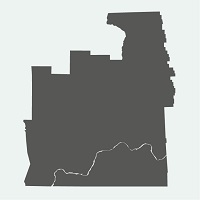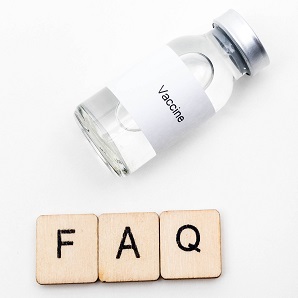
NYS Southern Tier Regional COVID-19 Vaccination
New York State Tiered Distribution of the COVID-19 Vaccine
Click here for the details of Phase One.
There is currently a limited supply of the COVID-19 vaccine, so it will take time to vaccinate everyone who wants to receive it. The CDC has established a framework to make the vaccine available in a phased approach. Exact time frames have not been determined.
Stay informed by visiting this page or the NYS COVID-19 website.
Are you eligible?
New York State has launched an "Am I Eligible" online tool to help New Yorkers determine their eligibility, connect them with administration centers and schedule appointments. To find out if you are eligible for the COVID-19 vaccine, click here.
Southern Tier Vaccination Locations
Please see information about vaccination locations in your county. There is great variability in the quantity of vaccines and timing of vaccination clinics, so click the link to the website you are interested in. That will give you more specific information about when and where you can register.
If you have family or friends who are unable to register electronically, registration by phone is available at
1-833-NYS-4VAX.
*Due to significant call volume, assume there will be time spent on hold.
| Translator Tools | Traducir | 翻译 |
|---|
|
Microsoft Translator Google Translate |
Booster Dose Information
Free booster shots are widely available statewide for eligible New Yorkers.
- To learn more about booster doses, click here.
- To schedule an appointment, click here.
Office for People With Developmental Disabilities' updated direct care staff return to work protocols
OPWDD has released the below updated direct care staff return to work protocols:
Find more guidance on COVID-19 at the following link: https://opwdd.ny.gov/coronavirus-guidance
Additionally, the CDC recently made the below COVID-19 resources available to staff who support people with developmental disabilities:
Get the Facts on the Vax, Don't Hesitate Vaccinate
Vaccination Process - Frequently Asked Questions
How much will it cost to get vaccinated against COVID-19?
There is no charge for vaccine.
While there is no charge for the vaccine, there will be a bill sent to your insurance company for the administration. There is no copay and no deductible. If you do not have insurance, you will not be charged.
How is the vaccine given?
The vaccine is given as an injection in the arm. Both the Pfizer and Moderna vaccines require a second dose to increase their effectiveness. The Pfizer vaccine second dose should be 21 days after the first shot, and the Moderna vaccine’s second shot should be taken 28 days after the first. Remember to bring your card when you return.
The Janssen vaccine only requires one dose.
What happens if I don’t get the second shot on time?
The schedule for doses of each vaccine is based on data from clinical trials. Everyone who receives a first dose of the Pfizer or Moderna vaccine should get the second dose according to schedule in order to provide the best possible protection against the disease.
There have not been enough studies to know if a delayed second shot will still reach the full effectiveness or each vaccine. When each vaccine is taken on their recommended schedule, they are extremely effective in preventing COVID-19.
What do I need to bring to the vaccination site?
After you have scheduled your appointment please bring the following documents with you to your appointment:
- Government issued photo ID
- Insurance card (Insurance is being billed, there is no co-pay and no charge if you do not have medical insurance)
- Verification of your eligibility to be vaccinated in the current phase
- Work ID badge with title (MD, RN, PA, NP, PT, etc.)
- Letter from your employer identifying your eligibility
- Paystub
As we move into other phases of vaccination this information will continue to be be updated.
What should I do to keep myself safe while waiting to get vaccinated and after I get vaccinated?
Continue to cover your mouth and nose with a mask when around others, stay 6 feet away from others who are not in your household, avoid crowds, and wash your hands often. All of these precautions must continue as you wait for the second dose and as we wait for a majority of the population to be vaccinated. Everyone must continue to use all the tools available to us to stop this pandemic as experts continue to learn more about the protection that COVID-19 vaccines provide us.
How often will I need to get COVID-19 vaccination?
The duration of protection from the vaccine against COVID-19 is unknown. Additional assessments of the vaccine are needed to know how often vaccination must be repeated to provide protection.
COVID-19 Vaccines - Frequently Asked Questions
How to replace a lost vaccination card/information from NYSDOH
There are three ways to retrieve vaccine information. Unfortunately the state does not replace vaccine cards.
1. You can try the Excelsior Pass online by entering vaccine information: https://epass.ny.gov/home
- If they cannot get your excelsior pass, they can use this contact info to put in a ticket:
- Please use this form if you require assistance for your Excelsior Pass. https://forms.ny.gov/s3/Record-Review-Request
- You can also reach out to the Excelsior Help Desk at 844-699-7277 from 7 a.m. to 10 p.m. daily.
2. Send a message to the NYSIIS help desk and they can mail a vaccine record to a patient.
- The NYIIS link is not public, so please send an email to Covid19Vaccine@health.ny.gov and your request will be forwarded.
3. Your Primary Care provider can provide a copy of your vaccine records.
UHS COVID-19 Vaccination PSA Videos
COVID-19 Vaccination Scholarship Incentive from NYS
The "Get a Shot to Make Your Future" vaccine incentive is a public outreach campaign to increase awareness of the availability and efficacy of COVID-19 vaccines and provide incentives to New Yorkers 12-17 years of age to get a COVID-19 vaccination.
Parents or legal guardians of any New Yorker, ages 12 to 17, can enter their child who has received at least their first COVID-19 vaccine dose, for a chance to win one of 50, four-year full-ride scholarships (including tuition, fees, room-and-board, and expenses) to any New York State public college or university.
The drawings will be conducted weekly, for five (5) weeks, beginning on Tuesday, June 1, 2021. Ten weekly winners (for a total of 50 winners) will be announced each Wednesday.
This attached flyer can be printed and posted in offices to encourage patients and families to register for this incentive.
Additional information is available at: https://www.governor.ny.gov/programs/vaccination-scholarship-incentive.
NYS PSA: Get Vaccinated! - Spread the Word (English & Spanish)
PSA Videos from Delaware County Public Health
"Sleeve Up for Head Start" Flyer
NYS Excelsior Pass
Excelsior Pass provides a free, fast and secure way to present digital proof of COVID-19 vaccination or negative test results.
Ad Council - COVID-19 Vaccine Education
NYS Citizen Public Health Training Program
To continue to empower New Yorkers, the state is launching a new Citizen Public Health Training where you will learn from top experts from Cornell on preventing and responding to public health emergencies.
How to talk about COVID-19 vaccination with farm workers
(CORNELL) The decision to receive the COVID-19 vaccine is a highly personal one, yet each individual’s decision has profound implications for public health. At the farm level, that makes farmer and farm worker vaccination an important risk management issue. The more people on your farm who are fully vaccinated against COVID-19, the lower your risk of experiencing a COVID outbreak with consequences for employee health and farm operations.
Clearing up COVID-19 Vaccine Myths for Women of Childbearing Age
Hello Black America! with W. Kamau Bell & Black Health Care Workers
COVID-19 Vaccine FAQs for those of Childbearing Age
Women's Health & COVID-19: Hosted by the American Civic Association
Benefits of Getting a COVID-19 Vaccine
Vaccination will help keep you from getting COVID-19
- COVID-19 vaccines are carefully evaluated in clinical trials and are authorized or approved only if they make it substantially less likely you’ll get COVID-19.
- Based on what we know about vaccines for other diseases, experts believe that getting a COVID-19 vaccine may help keep you from getting seriously ill even if you do get COVID-19.
- Getting vaccinated yourself may also protect people around you, particularly people at increased risk for severe illness from COVID-19.
- Experts continue to conduct more studies about the effect of COVID-19 vaccination on severity of illness from COVID-19, as well as its ability to keep people from spreading the virus that causes COVID-19.
COVID-19 vaccination will be a safer way to help build protection
- COVID-19 can have serious, life-threatening complications, and there is no way to know how COVID-19 will affect you. And if you get sick, you could spread the disease to friends, family, and others around you.
- Clinical trials of COVID-19 vaccines had to show they are safe and effective before any vaccine could be authorized or approved for use. The known and potential benefits of a COVID-19 vaccine had to outweigh the known and potential risks of the vaccine for use under what is known as an Emergency Use Authorization (EUA). Watch a video on what an EUA is.
- Getting COVID-19 may offer some natural protection, known as immunity. But experts don’t know how long this protection lasts, and the risk of severe illness and death from COVID-19 far outweighs any benefits of natural immunity. COVID-19 vaccination will help protect you by creating an antibody response without having to experience sickness.
- Both natural immunity and immunity produced by a vaccine are important aspects of COVID-19 that experts are trying to learn more about, and CDC will keep the public informed as new evidence becomes available.
COVID-19 vaccination will be an important tool to help stop the pandemic
- Wearing masks and social distancing help reduce your chance of being exposed to the virus or spreading it to others, but these measures are not enough. Vaccines will work with your immune system so it will be ready to fight the virus if you are exposed.
- The combination of getting vaccinated and following CDC’s recommendations to protect yourself and others will offer the best protection from COVID-19.
- Stopping a pandemic requires using all the tools we have available. As experts learn more about how COVID-19 vaccination may help reduce spread of the disease in communities, CDC will continue to update the recommendations to protect communities using the latest science.
*CDC Information
Facts about COVID-19 Vaccines
See the Pfizer, Moderna ands Janssen vaccine fact sheets.
FACT: COVID-19 vaccines will not give you COVID-19
None of the COVID-19 vaccines currently in development in the United States use the live virus that causes COVID-19. There are several different types of vaccines in development. However, the goal for each of them is to teach our immune systems how to recognize and fight the virus that causes COVID-19. Sometimes this process can cause symptoms, such as fever. These symptoms are normal and are a sign that the body is building immunity. Learn more about how COVID-19 vaccines work.
It typically takes a few weeks for the body to build immunity after vaccination. That means it’s possible a person could be infected with the virus that causes COVID-19 just before or just after vaccination and get sick. This is because the vaccine has not had enough time to provide protection.
FACT: COVID-19 vaccines will not cause you to test positive on COVID-19 viral tests
Vaccines approved for use in the United States won’t cause you to test positive on viral tests, which are used to see if you have a current infection.
If your body develops an immune response, which is the goal of vaccination, there is a possibility you may test positive on some antibody tests. Antibody tests indicate you had a previous infection and that you may have some level of protection against the virus. Experts are currently looking at how COVID-19 vaccination may affect antibody testing results.
FACT: People who have gotten sick with COVID-19 may still benefit from getting vaccinated
Due to the severe health risks associated with COVID-19 and the fact that re-infection with COVID-19 is possible, people may be advised to get a COVID-19 vaccine even if they have been sick with COVID-19 before.
At this time, experts do not know how long someone is protected from getting sick again after recovering from COVID-19. The immunity someone gains from having an infection, called natural immunity, varies from person to person. Some early evidence suggests natural immunity may not last very long.
We won’t know how long immunity produced by vaccination lasts until we have a vaccine and more data on how well it works.
Both natural immunity and vaccine-induced immunity are important aspects of COVID-19 that experts are trying to learn more about, and CDC will keep the public informed as new evidence becomes available.
FACT: Getting vaccinated can help prevent getting sick with COVID-19
While many people with COVID-19 have only a mild illness, others may get a severe illness or they may even die. There is no way to know how COVID-19 will affect you, even if you are not at increased risk of severe complications. If you get sick, you also may spread the disease to friends, family, and others around you while you are sick. COVID-19 vaccination helps protect you by creating an antibody response without having to experience sickness. Learn more about how COVID-19 vaccines work.
FACT: Receiving an mRNA vaccine will not alter your DNA
mRNA stands for messenger ribonucleic acid and can most easily be described as instructions for how to make a protein or even just a piece of a protein. mRNA is not able to alter or modify a person’s genetic makeup (DNA). The mRNA from a COVID-19 vaccine never enter the nucleus of the cell, which is where our DNA are kept. This means the mRNA does not affect or interact with our DNA in any way. Instead, COVID-19 vaccines that use mRNA work with the body’s natural defenses to safely develop protection (immunity) to disease. Learn more about how COVID-19 mRNA vaccines work.
*CDC Information
Fact Sheets in Multiple Languages / 中文 / Español / عربي / Other
Multilingual COVID-19 Resources
Click Here
Language Translation Tools / Traducir / 翻译 / Phiên dịch / Other
Microsoft Translator
Microsoft Translator on iPhone
Microsoft Translator on Android
Microsoft Translator on Desktop















